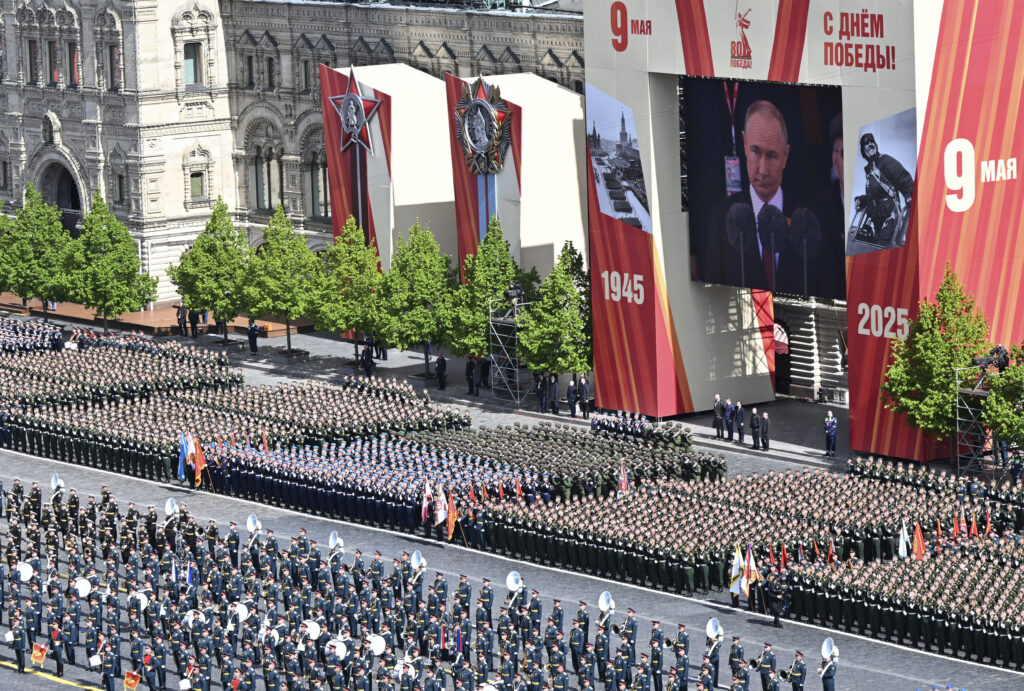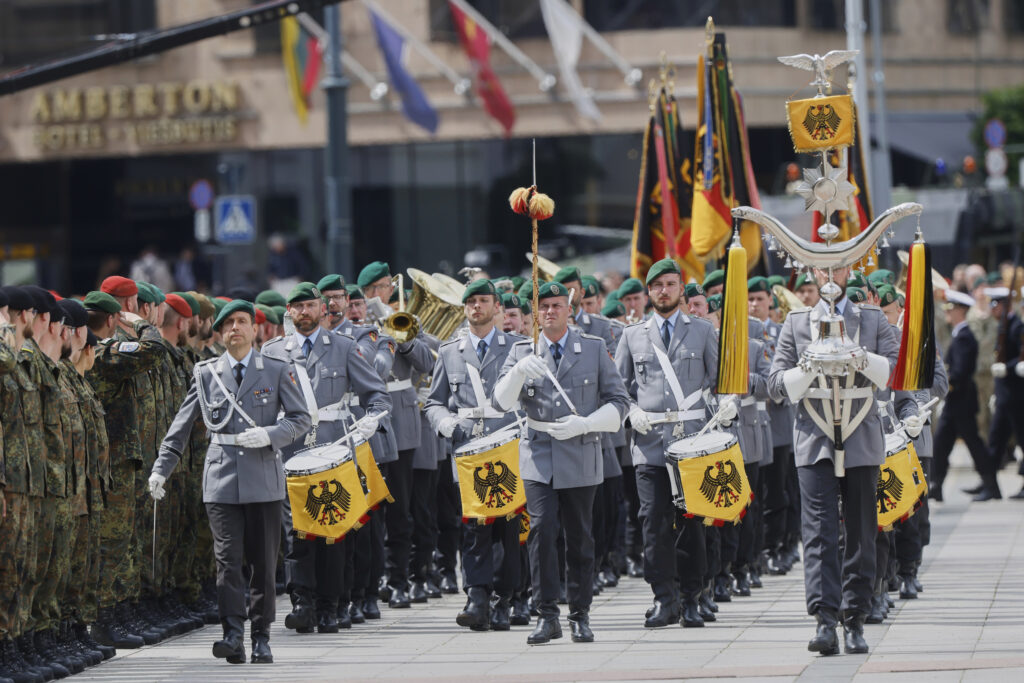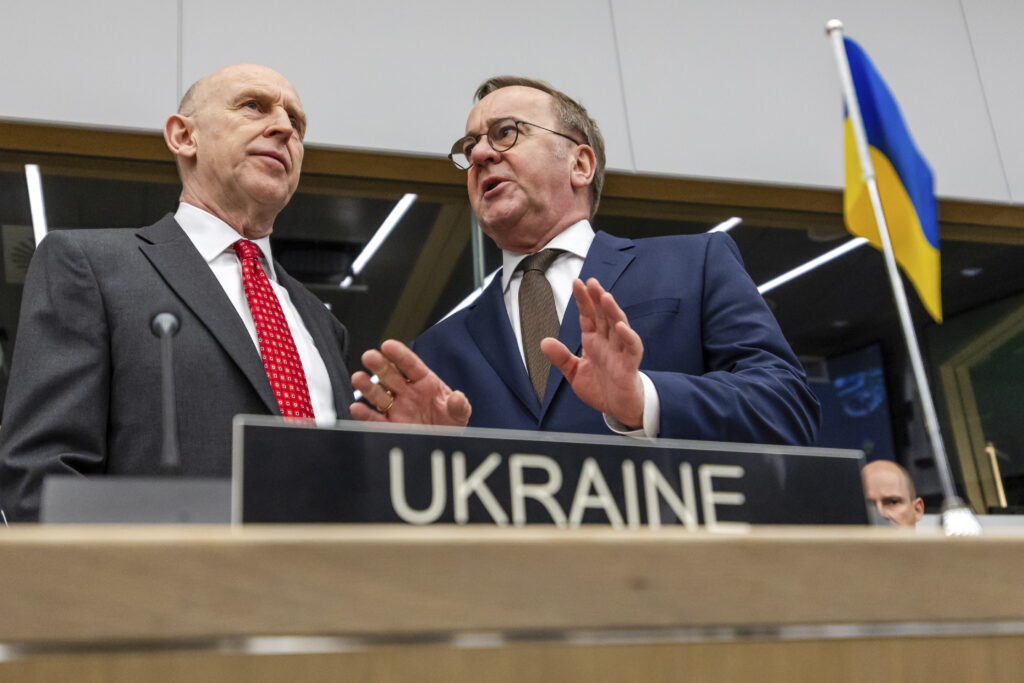Trump, Amid Wrangling Over Iran-Israel Cease-Fire, Arrives in Holland Tonight for Victory Lap Around NATO Summit
With Trump soft on Putin, Germany steps up to lead Europe’s defense against Russia.

Amid wrangling over an Iran-Israel cease-fire, President Trump visits the Hague tonight. He is poised to enjoy a victory lap around the annual summit of the North Atlantic Treaty, the world’s most powerful military alliance. After Friday’s display of air and naval prowess in bombing Iranian nuclear sites, European and Canadian leaders may walk on eggshells when they meet Mr. Trump.
While America pays only 16 percent of the NATO budget, it accounts for 70 percent of the total military spending by the 32-nation alliance. Next month, the Pentagon is to review its deployment of forces worldwide. The review could lead to a 25 percent cut in the 82,000 American troops deployed in Europe. To hand Mr. Trump a victory, NATO countries plan to approve tomorrow the raising of the alliance goal of defense spending to 5 percent of members’ GDP, from 2 percent today.
Since President Truman, American leaders have asked Europeans to pay for their own defense. This time is different. For the first time since the summer of 1945, an American president is surprisingly soft on his counterpart in the Kremlin. To placate Mr. Trump, NATO summit organizers are keeping President Zelensky largely out of the picture. His participation is limited to a state dinner in a 17th-century palace hosted by King Willem-Alexander of Holland. Mr. Trump is timing his arrival tonight to miss the dinner.
In the 1950s, NATO’s first secretary-general, Lord Ismay, explained the goal of the alliance as: “Keep the Russians out, the Americans in, and the Germans down.” Today, there is a new lineup. The Americans want out. The Russians are fighting at Europe’s eastern gate — Ukraine. And, in a big shift, Germany is stepping up to lead Europe’s defense.

This new upside-down reality was captured in a poll of 1,613 Russian adults conducted last month. The share of Russian adults who perceive the United States as the nation most hostile to Russia was 47 percent, a big drop from 72 percent last September. The respected Moscow-based polling group said: “For the first time in 20 years of measurements, the U.S. dropped from first place to fourth place on this list.”
Topping the Russian hostility index, at 55 percent, was Germany. Americans are aware of Mr. Trump’s concessions to Russia. Few know of the combative policy toward Moscow implemented by Germany’s new chancellor, Friedrich Merz, a 69-year-old former corporate lawyer. Unlike the Trump administration, the Merz government sees Ukraine as core to its national security.
Last fall, on the campaign trail, Mr. Merz vowed to transform Germany from “a sleeping middle power” to a “leading” one. In March, while still a candidate, Mr. Merz engineered passage of a new debt rule that allows spending half a trillion dollars on defense and key infrastructure.
Since then, announcements have tumbled out of Germany’s new government. This year, Germany is to displace America as the largest supplier of military aid to Ukraine. Visiting Kyiv, Germany’s defense minister, Boris Pistorius, announced a doubling of aid, to $10 billion. When Mr. Zelensky visited Berlin, Mr. Merz promised to give Ukraine IRIS-T air defense batteries and to co-finance long-range weapons production in Ukraine “without range limits.”
Russia poses an “essential risk” to Germany and Europe, the German news magazine Spiegel reported last week. It cited a new strategy paper by Germany’s armed forces, the Bundeswehr. Noting Russia’s surging military production, the report warned that the Kremlin is aligning its industry and leadership “specifically to meet the requirements for a large-scale conflict against NATO by the end of this decade.”

Marking an end to a post-Cold War “holiday from history,” Germany’s defense chief, Carsten Breuer, last month ordered the nation’s military to be fully equipped by 2029 with enough weapons to block Russia, Reuters reports. Mr. Pistorius has ordered a 30 percent expansion of troop levels, to 240,000. This is still only half of the active-duty troop levels that Germany maintained during the Cold War.
“We are quite certain — and we have intelligence showing it — that Ukraine is only a step on the journey westward,” Germany’s Federal Intelligence Service president, Bruno Kahl, told Berlin’s Table Media two weeks ago. “That doesn’t mean we expect tank armies to roll westwards. But we see that NATO’s collective defence promise is to be tested.”
Russia could have 1.5 million soldiers on active duty by this time next year, according to the paper. Russia’s army is already eight times larger than Germany’s. Major General Christian Freuding of Germany tells Reuters: “They are recruiting significantly more personnel than they need as replacements for the war in Ukraine. They are producing surplus stocks of ammunition, in particular, which they are ‘putting on store.’”
With Germans feeling threatened by Russia, a $10 billion plan is in the works to convert subway stations, underground parking garages, and basements of public buildings into bomb shelters, the Federal Office of Civil Protection president, Ralph Tiesler, tells Süddeutsche Zeitung. He estimates that only a quarter of Germany’s 2,000 Cold War-era bunkers are still usable.

“For a long time, there was a widespread belief in Germany that war was not a scenario for which we needed to prepare,” he said. “That has changed. We are concerned about the risk of a major war of aggression in Europe.”
A Germany-Russia faceoff is not something Russians should want. Russia may have 40 percent more people, but Germany’s $4.5 trillion economy is more than double Russia’s. For now, the Kremlin responds with bravado.
“In Moscow’s offices, it’s being discussed that if German troops strike Moscow with German weapons … then we have no choice but to strike Berlin,” a leading TV propagandist, Margarita Simonyan, said about the potential supply of German-Swedish Taurus missiles to Ukraine. Russia’s foreign minister, Sergey Lavrov, lashed out on state TV: “Germany is sliding down the same slope that it has already been moving down a couple of times in the last century, toward its collapse.”
Last week, President Putin asked news agency editors: “What is this, if not the involvement of the Federal Republic in a direct armed conflict with the Russian Federation? It can’t be called anything else.” A fluent German speaker from his days as a KGB agent in East Germany, Mr. Putin said he is open to dialogue “if the Federal Chancellor wants to call and talk.”
Watching from North America, analysts suddenly realize that Germany is stepping up.
“A major Rubicon has been crossed, because Germany gets it,” a Canadian-American journalist, Diane Francis, told a recent Ukraine conference in Toronto. “The German leader has pledged defense spending equivalent to half a trillion dollars … that turnaround is enormous.”
Bloomberg News’s Chris Bryant writes: “The world once feared a stronger Germany, but now its allies, including the US, should welcome it.”
At Washington, Mr. Merz’s visit to the White House two weeks ago went surprisingly smoothly. To soften up the American president, Mr. Merz, a former BlackRock Germany executive, gave Mr. Trump a gilt-framed copy of the 1869 birth certificate of his grandfather, Friedrich Trump. Asked later if he planned to leave American troops in Germany, Mr. Trump told reporters: “We’ll talk about that. But if they’d like to have them there, yeah.”

